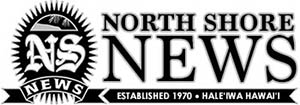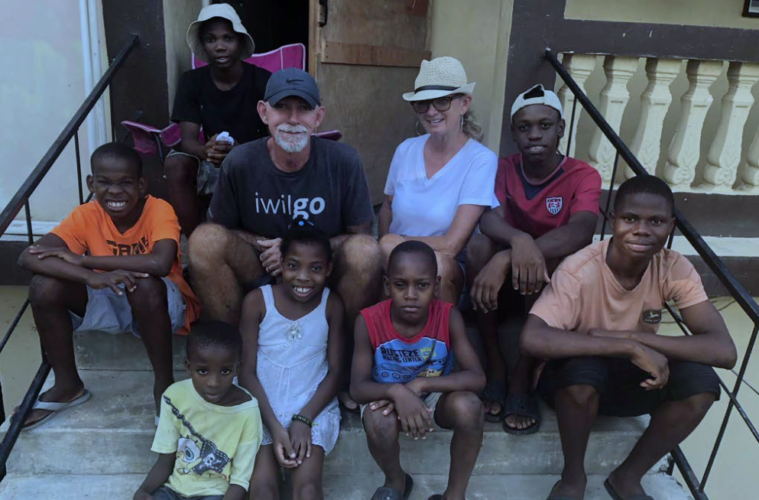Many of us spend our lives working hard at our jobs, doing chores at home, and spending our re- maining time rejuvenating ourselves. But beyond that, we often don’t figure out why we are really here on Earth. That’s not the case for Katherine and Mark Bender. It’s all about making a difference.
For now, they live in a small house in Haleiwa
near the historic Emerson home where mission-
aries arrived in the mid-1800s. The Benders’ two
daughters, both married to Schofield servicemen,
live nearby. The couple feel a sacred connection to
their Christian faith here. They are satisfied with a
few necessities and the clothes on their backs. They
walk six to eight miles daily and ride their bicycles,
take the bus often, and usually stop to chat. It’s a
life well-lived day by day.
How it all started
The Benders used to be the typical corporate couple, working 60 to 70 hours a week and raising their daughters. They met while working at a San Diego firm where Mark was a marine research diver. For the next 25 years, they lived the traditional life in Arizona where Mark worked as an aerospace en- gineer and Katherine a marketing executive.
They seemed to have it all. They spent time off traveling as missionaries to under-served areas where they worked on water, sanitation, and vari- ous other projects. When the job was done, they returned home to the States. Then the couple and their daughters traveled to China to build a play- ground for an orphanage.
This time, when the family returned home, “we realized this is what we were really meant to do,” according to Katherine.
It was August 2008 at the height of the Great Re- cession when the economy was in a tailspin. Kath- erine’s job evaporated. It was a sign. It was time to transform their vision into reality.
However, there was a trade-off. They had to become “minimalists”, as Katherine describes it. By 2010 the couple sold their home and most of their possessions and moved with their then teen- age daughters to Haiti, where they decided to set up stakes for six months a year.
Previously, the Benders had traveled as mission- aries around the globe but were frustrated because they had been unable to continue whatever they had started. Community members did not have the knowledge or skill to maintain and carry the proj- ects forward on their own, nor the education and training to become self-sufficient. Katherine and Mark were determined to change that.
Launching iwilGo
Their venture into Haiti has now grown from construction projects to educational and entrepre- neurial programs. In 2016 the Benders established iwilGO, a 501 (c)(3) public nonprofit organization supporting their missionary work not only in Haiti, but also in Ghana and Kenya.
Living in the communities where they serve, the Benders engage with villagers to develop projects designed to alleviate poverty and achieve economic independence. They believe it is critical to include the local people as part of the process and partner with other charitable organizations.
COVID-19 dramatically impacted how the Bend-
ers have been able to do business. They left Haiti
quickly before travel was completely shut down. Be-
cause there was no COVID testing there, they would
have been unable to leave had they stayed. So, for
the time being, most of their field work has taken
a back seat to support they can provide remotely.
Everything requires 10 times more planning.
Back in Haleiwa
The Benders are grateful to freely enjoy the out- doors and socialize with friends and neighbors in Haleiwa.
In Haiti, some people are not welcoming, and kidnapping is a problem in the large cities, so they are unable to wander beyond their compound. In Kenya, stepping outside their door could bring them face-to-face with wild animals – elephants, lions, hy- enas or venomous snakes.
Local people are supportive. The Green Gypsy Thrift Store in Waialua gives them clothes for their school children in Haiti. The Sorry Too Cheap sale at Haleiwa Jodo Mission provides them discounts for items going to Haitian children and seniors.
Somedays Katherine and Mark wake up and ask themselves, “Where do we belong?” Katherine says. Then they realize that they’re simply part of a global community.
The iwilGO.org website accepts donations for a variety of sponsorships and recruits team members interested in performing field work. Contact infor- mation: kbender@iwilGO.org.



